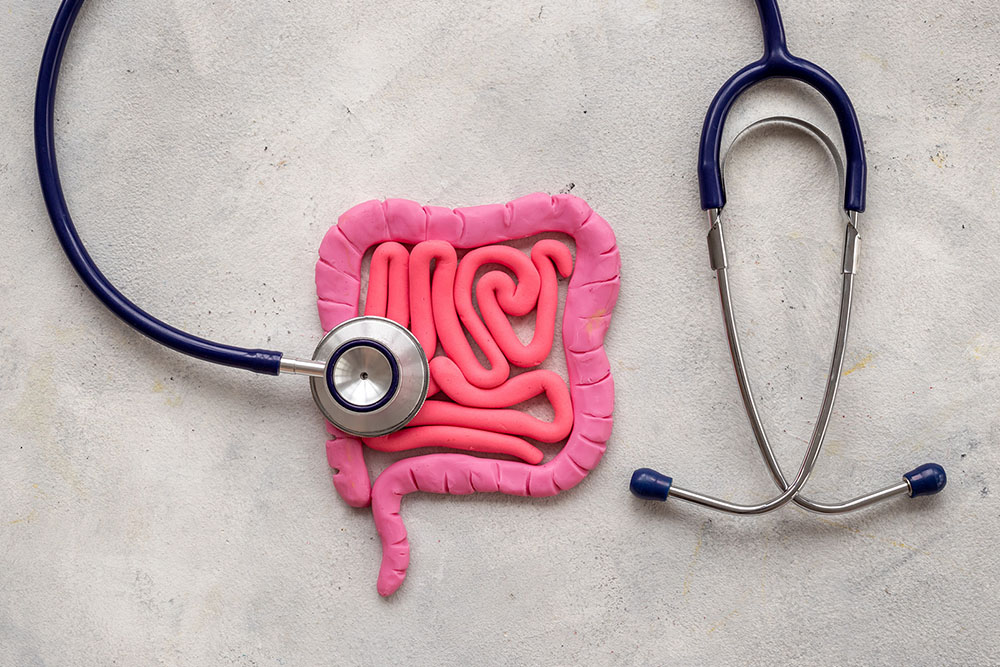
Blood rectal bleeding is frightening. You may ask yourself, is it a minor thing or something not? We have a belief in plain and straightforward information at Gastrodoxs. We will discuss all of it here, starting with the color of blood in stool and its meaning and, finally, when you should see a doctor because of rectal bleeding. We shall also talk about rectal bleeding which is a symptom of colorectal cancer and difference between bright red and dark red stool. The fact is going to be presented to you in an easy, friendly way by quotes of Dr Bharat Pothuri, a gastroenterologist from Houston.
Rectal bleeding refers to any blood discharged out of your rear. You can find it in toilet paper, the toilet bowl or stool. A tiny drop of blood is worthy of mention. Dr Bharat Pothuri of the top GI center in Houston says in regards to rectal bleeding never to put a blind eye on it. Problems can be avoided through early check-ups.
Your stool color provides an indication of where the bleeding takes place:
The CDC states that black, tarry stool is an indicator of an upper GI bleed. Detection of color differences aids the doctor in identifying the cause in a short period of time.
The causes of rectal bleeding are numerous. There are mild ones; there are those that are life-threatening. Common causes include:
It is a common fact that bleeding can have simple causes, however, it may also indicate something more serious such as the presence of colorectal cancer, remarks Dr Pothuri. That is why physicians in Houston advise people to screen after the age of 45 or before that age in case of symptoms.
Why does blood vary in color? It is a matter of the length of its journey in the digestive tract:
A bright red typically has a shorter digestive period whereas dark red or black has a longer one. This aids your doctor in making the correct tests.
Rectal bleeding may be an emergency. Call your Houston GI specialist when you have:
Dr Pothuri advises: Do not underestimate the loss of blood even a bit of bleeding in several weeks. Call your doctor in case you notice blood in more than one spot.
A red flag of colorectal cancer is rectal bleeding. Early stages might cause:
National Cancer institute states that early detection would increase survival rates of five years above 90. The gold standard of screening is colonoscopy. According to the American Cancer Society, the age at which adults should begin is 45 in case of average risk.
According to Dr Pothuri, patients in Houston always want to know whether blood in their stool is an indicator of cancer. “Most of the time, it's not. However, screening and early assessment is the key to the timely detection of cancer at a time when its treatment is more feasible.
| Blood Color | Probably the Cause of the color | Common causes in Blood | Symptoms |
| Bright Red | Rectum/Anus | Hemorrhoids, Anal fissures, Ulcerative colitis | Pain, itching |
| Dark Red/Maroon | Colon (mid/upper) | Diverticulosis, Polyps, Crohn's disease | Cramps, urgency |
| Black/Tarry (Melena) | Stomach/Small Intestine | Gastric ulcers, Erosive gastritis | Nausea, vomiting |
It is possible to keep your bowels healthy, which will help avoid rectal bleeding in the hot, humid weather of Houston:
Dr Pothuri also notes: Prevention Hemorrhoids and fissures can be prevented by lifestyle changes. On other problems, early therapeutic intervention in the best GI centers of Houston is a significant difference.
Rectal bleeding is not necessarily something serious. But it's never normal. Knowing the color of blood in the stool and what it indicates will assist you in knowing what to anticipate. Awareness of rectal bleeding and the possible causes of bleeding results in enhanced care. However, the most important thing to remember is that the time of onset is the earliest opportunity to diagnose rectal bleeding.
Rectal bleeding should not be neglected as a symptom of colorectal cancer or any other disease. In case you are in Houston, you should make an appointment with a reputable gastroenterologist such as Dr Bharat Pothuri.
To find good information that can be trusted, consult the guide on hemorrhoids by the Mayo Clinic and the NIH page on gastrointestinal bleeding.
You are the master of your health by being aware of the causes of rectal bleeding early. Gastrodoxs and Dr Bharat Pothuri in Houston are available to accompany you to your journey.
Wipe and record the frequency of occurrence. In case it is more than a single time, call your physician in Houston.
Stress does not cause bleeding on its own, but can aggravate such ailments as IBS or fissures.
It does not necessarily indicate bleeding this way, but it frequently indicates bleeding higher in the colon. Seek medical care.
Your physician can apply anoscopy, sigmoidoscopy or colonoscopy. Blood tests and stool tests may also come in handy.
Yes. Consume high-fiber foods, drink lots of water, physical activity, and do not strain.
No. Certain causes such as polyps or IBD does not cause pain but does cause bleeding.
Melena is tarry, black stool, which is a sign of upper GI bleeding. It needs prompt evaluation.
The American Cancer Society suggests an initial age of 45 years in average risk adults.
Yes. NSAIDS or blood thinners may cause irritation of the gut lining and result in bleeding.
Go to the GI bleeding overview in the Centers of Disease Control and Prevention and the bleeding disorders page of the Mayo Clinic.